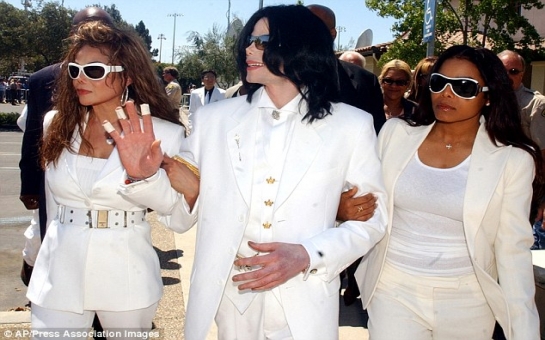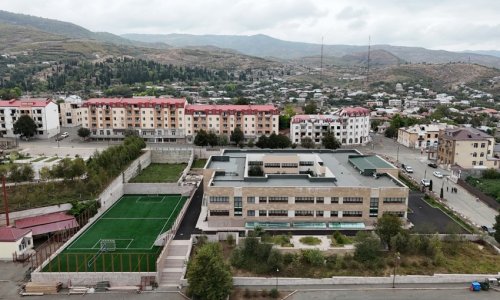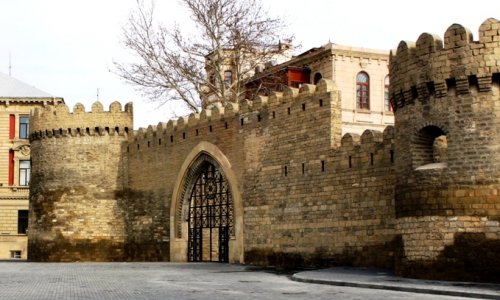At just 50 years old, the haunted genius, whose music defined a generation, was pronounced dead from an overdose of prescription drugs at the UCLA Medical Center on June 25, 2009. As his millions of devastated fans mourned, the police investigation into his death unfolded slowly.But if the Jackson family and his worldwide followers hoped that the story would end with the trial of Dr Conrad Murray, Michael’s personal physician, who was convicted of involuntary manslaughter in November 2011, they were disappointed.Michael was not to be allowed to rest in peace quite so quickly.I had publicly predicted on December 24, 2008, that Michael would probably die within six months. Six months and one day later, the King of Pop was indeed dead, leading the New York Post to describe me as a modern-day Nostradamus.I wasn’t proud of my eerily accurate prediction. Originally, I intended it to serve as a wake-up call, in the hope that Michael could get the help he needed.I urged his minders to get him the proper medical treatment he deserved. Instead, they booked him for 50 shows, a task that would be monumental for even the healthiest 50-year-old rock star to complete, let alone Michael, who was known to have suffered for years from multiple physical ailments.Now, as the fifth anniversary of his death approaches, I wish I hadn’t made that prediction. It has contributed to an ever-growing number of conspiracy theories that mean he cannot rest in peace. Indeed, such is the lure of these that many close to him refuse to accept the truth about his death.Michael’s closest confidante, Elizabeth Taylor, insisted privately that something was amiss.She surmised that ‘wacko Jacko’, as he was in my view unfairly called, was always going to be worth more in a shroud than he ever was moon-walking in a spangled jumpsuit.Frank Dileo, Michael’s cigar-chomping, larger-than-life manager, was also taken in by the bizarre claims. The legendary music mogul – an affable character who was Michael’s life-long companion – was blunt.Michael, he believed, was the ‘victim of foul play’. Dileo died in 2011, following complications after heart surgery, but gave me his final interview. Teary and emotional, he made a series of wild allegations that have never before been published. ‘It’s clear Michael was worth more dead than alive,’ he told me, choking back tears. But he added: ‘I can assure you Conrad Murray is not the only person who should stand trial.’I dismissed Dileo’s allegations as an emotion-driven, somewhat maudlin conspiracy theory.Another of Michael’s long-time friends who bought into the conspiracy theory was television personality Geraldo Rivera. And although I have written off his wilder allegations, one remains intriguing.Shortly after Michael died, I appeared on Geraldo’s show. After the credits had rolled, he ordered one of his staffers to hand me over a pile of receipts for prescription drugs made out to the singer by doctors.I was stunned.Prescriptions were made out to Michael for a range of painkillers and sedatives, including Demerol and Lidocaine. Rivera told me he was not surprised Michael was found dead.‘There were a lot of enablers around him,’ Rivera said. ‘Nobody stepped in to get him the help he needed. His doctors enabled him, his friends enabled him. Michael was addicted to drugs.'He needed proper medical attention. I call on the authorities to go after these guys. These are pimps for pills.’The simple truth is this: the most extraordinary fact about Michael Jackson’s death is that it made him the highest-earning corpse in the world.Before he died, he was $500 million in debt. Now his estate’s vast fortune, estimated at $1.5 billion, eclipses the wealth spawned even by Elvis Presley.Last year, Forbes magazine revealed that he had regained his number-one spot in the list of top-earning dead celebrities, raking in $160 million between October 2012 and October 2013.(This compares with $125 million for Madonna, who’s still with us, and easily exceeds Elvis Presley’s $55 million).John Branca, co-executor of the Michael Jackson estate, admitted to journalist Robin Leach in June 2013 that Michael was now worth much more than he was when alive. ‘He’s made more money in the four years since his death than he made during his lifetime,’ Branca said.‘Since he died, he’s sold 50 million albums and is still the biggest-selling artist on iTunes.’But the details of this vast wealth are tortuously complex and remain highly controversial.When his estate released a new album, Xscape, last month, featuring a duet with Justin Timberlake and other material recorded in 2001, it topped the charts both in the US and the UK.It was panned musically but, more tellingly, critics accused Xscape’s producers of exploiting Michael’s legacy simply from greed.One headline, from the popular Daily Beast website, thundered: ‘Michael Jackson’s posthumous album Xscape is a confused, shameless money-grab.’The eleventh album released since Michael’s death was a cash cow, critics claimed.Quincy Jones, who produced Thriller, Bad and Off The Wall, went further. In a hard-hitting interview with the Canadian Broadcasting Corporation, he concluded: ‘They’re trying to make money and I understand it.'It’s about the money. The estate, the lawyers you know... it’s about the money.’Frank Dileo insisted that Michael never released certain songs because they were not up to his incredibly high standards.‘Michael was a stickler,’ he said. ‘Unless it was incredible, he would never consider putting it out. I fear that the people who exploited Michael while he was alive are now conspiring to make as much money [as they can] off him in death. It’s not the way Michael would have wanted it.’It was only weeks after Michael’s death that the co-executors of his estate, John Branca and John McClain, made headlines for beginning lucrative major merchandising deals.There was an extension of the contract with Sony from 2015-2017 (allegedly worth $250 million); a documentary, This Is It, which became the highest-grossing documentary or concert movie of all time, with earnings of more than $260 million worldwide, and two blockbuster shows with Cirque du Soleil which have grossed $300 million since opening in 2012.All that set the wheels in motion to clear Michael’s huge debt. For years, his finances had been under strain. Yet in the first 12 months after his death, Michael sold more than 8.2 million albums in the US and a total of 35 million worldwide.Posthumously, three of his albums sold more than any new album.The result was earnings of around $600 million – easily eclipsing the debt of $500 million he had when he died.But although the debt had been paid off, the gold rush triggered desperate infighting among his family. In July 2012, his sister Janet Jackson and four other siblings – Rebbie, Jermaine, Tito and Randy – sent a stern letter to the estate accusing them of misappropriating finances and of abusing the Jackson family matriarch, Katherine Jackson.The letter didn’t mince words. ‘We know there is most certainly a conspiracy surrounding our brother’s death and now coarse manipulation and fear are being used to cover it up,’ they wrote. ‘Your heartless pursuit of wealth, fame and power is at the expense of our family, whose deepest desire is to give to the world a gift of hope, love and unity through our music.’Janet and her siblings also questioned the authenticity of the July 7, 2002, will that Michael signed in Los Angeles. The Jacksons alleged that Michael was actually in New York City that day. In the letter, they referred to the will, saying that ‘without question, it’s fake, flawed and fraudulent’.However, it has never been proved that the will was fake, and executors Branca and McClain have been quick to respond to the sensational allegations, vehemently denying any wrongdoing.(Branca had filed Jackson’s will in Los Angeles on July 1, 2009, which was initially contested by Michael’s mother Katherine, but she later withdrew her objections.)As well as alleging that the 2002 will was not valid, the Jackson family said Michael would not have wanted Branca and McClain to be the executors.But estate spokesman Jim Bates said: ‘We are saddened that false and defamatory accusations grounded in stale internet conspiracy theories are now being made by certain members of Michael’s family whom he chose to leave out of his will. ‘We are especially disheartened that they come at a time when remarkable progress has been made to secure the financial future of his children by turning around the estate’s finances as well as during a time when so many of Michael’s fans, old and new, are enjoying his artistry through exciting new projects.’In fact, Katherine receives an annual allowance of $1.3 million and has taken out a $6 million loan. Michael’s three children are paid a $3 million allowance annually. In 2012, the family rented another home for $26,000 a month while their main home was being renovated. Storage and moving fees alone that year were a startling $806,872.52.Then, in April 2013, Michael’s family also sued the concert promoter AEG Live, which had asked him to perform the 50 shows.They asked for $40 billion (£25.8 billion) in damages, claiming the group negligently hired Dr Murray as his personal doctor and ignored signs that Michael was in poor health before he died.A jury in Los Angeles exonerated AEG, finding that they played no part in his death.But the battles over his value did not stop. As is so often the case when a star dies, nobody really knows which stories about their often enigmatic and mysterious lifestyle to believe. And of no one has this been more true than Michael.Eyebrows were raised in February 2014 when the Internal Revenue Service accused his estate of submitting a false tax return, valuing Michael at the time of his death at just $7 million. His ‘likeness’ was valued at just $2,105 and his interest in his music at zero.Yet through the agreement with Sony, he still owned rights to many of the songs in The Beatles’ back catalogue.Not surprisingly, the IRS had a completely different perspective, valuing Michael’s likeness at $434 million and his percentage interest in the music catalogues at $469 million.Once again, Michael’s family and his fans were confused by the conflicting reports. How sad that after so many tough financial years for Michael before he died, the money was pouring in once he had left us.The intolerable pressure on Michael in the run-up to his death, from his ailing health and his financial woes, is clear from his ramblings to his manager.Dileo said: ‘Just a few weeks before Michael died he told me he thought someone would kill him. I thought he was being overly paranoid. ‘He told me there were people out there who wanted him dead. He said he didn’t think he would live too long and that if anything happened to him he wanted me to know he loved me.’Yet who was looking out for him? Here was a guy who was deeply paranoid, severely unwell and under unimaginable financial pressure. Kenny Ortega, director of the documentary This Is It, described Michael in his final days as ‘incoherent’, saying: ‘My friend wasn’t right. There was something going on that was deeply troubling me.’Brian Oxman, the longstanding attorney to the Jackson family, has admitted to me: ‘All I heard during the final weeks of Michael’s life was that he was missing rehearsal, he could not rehearse. What you saw in the movie [This Is It] was not an accurate reflection of what was really taking place.’Michael Jackson was undoubtedly a deeply troubled and tormented man. His final years were riddled with debt and extensive drug abuse. What a desperate irony that his financial managers have performed so much better after his death than before.(dailymail.co.uk)Bakudaily.az
How the king of pop made $1.5billion... over his dead body
Culture
18:25 | 09.06.2014

How the king of pop made $1.5billion... over his dead body
I still find it hard to believe that it is five years since Michael Jackson, the undisputed King Of Pop, was found dead upon the bed of his $100,000-a-month rented mansion in Los Angeles.
Follow us !










